Call to make bus firms provide more wheelchair spaces
- Published
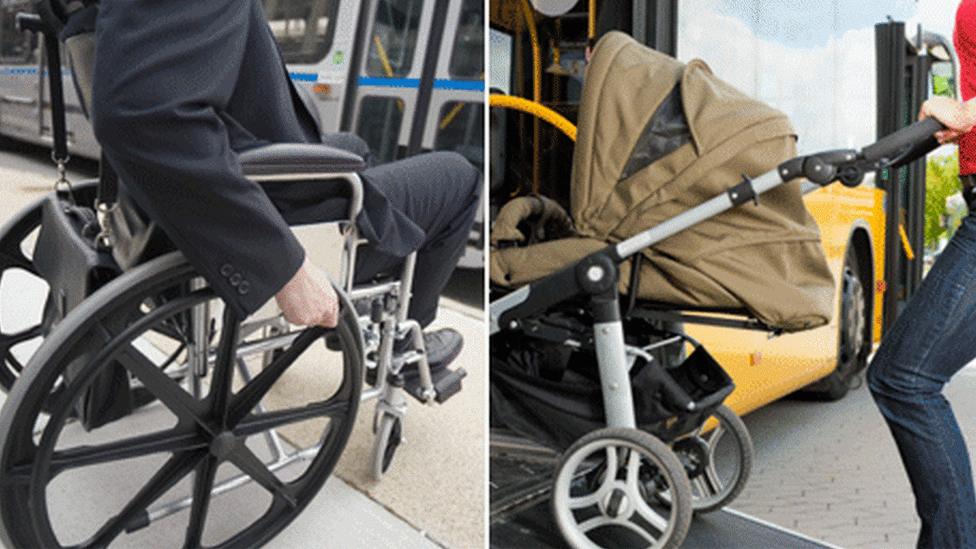
Priority spaces on buses are often difficult to reach, say users
Disability campaigners in Wales have called for bus companies to be forced to provide at least two wheelchair spaces.
Current rules require only one space for firms to comply with the Equality Act, external.
Bridgend Coalition of Disabled People chairman Simon Green said transport companies will always do the legal minimum.
The Department for Transport (DfT) has been asked to comment.
Bus companies said an additional wheelchair space was possible, but would result in reduced capacity, requiring increased tax-payer subsidies on some routes.
In January, the Supreme Court ruled bus companies had to consider further steps when disabled spaces are occupied by pushchairs.
However, even when pushchairs are not in the disabled space of a bus, there can sometimes be a capacity issue.
Mr Green said an increase in wheelchair users meant the rules should change.
Simon Green says it can be "one or the other" between a wheelchair and pushchair on buses
He said: "Accessibility on buses has vastly improved. When I first started using a wheelchair I was lucky if I could get on any bus.
"The vast majority of buses, with my very-lightweight wheelchair, I can get onboard it without a problem.
"The problem is that, if I'm onboard, very often someone else in a wheelchair can't get onboard."
He said some buses have two spaces but often a bar does not leave room for a wheelchair and a push chair or two wheelchairs, which is a "huge issue".
Mr Green called for "bigger, wider" spaces with fold-down seats toward the front of the bus, to allow for flexibility.
"I think the law and the regulations should be changed. I think each bus should be able to carry at least two people in wheelchairs," he added.
The plea came after two women in Monmouthshire told BBC Wales they no longer use public transport, after being stranded when the single wheelchair space was already occupied on the last bus home.

'I barricaded myself in'
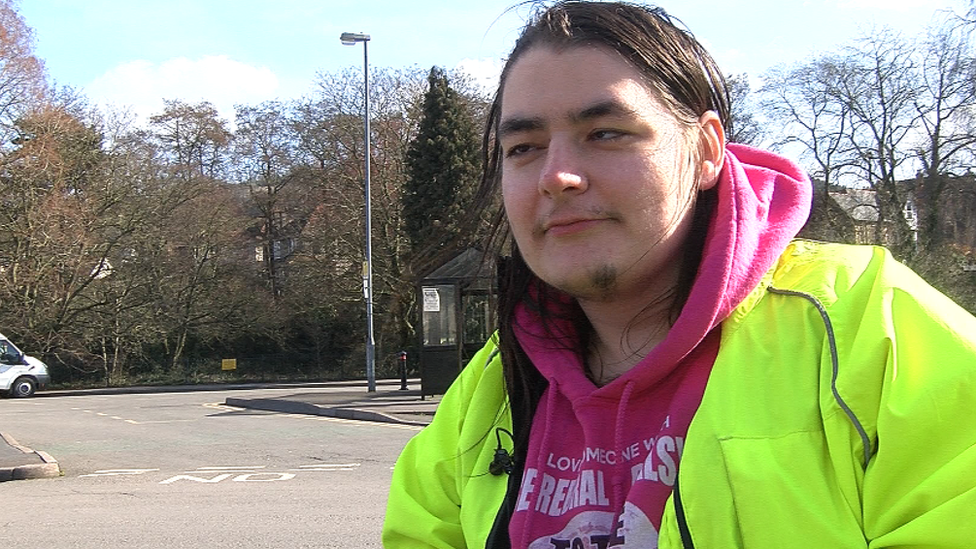
Wheelchair user Bethan Watkins said: "Maybe sometimes people don't understand how difficult it is for disabled people to actually just plan and use the buses."
Bethan Watkins, from Raglan, tries to regularly catch a bus to and from Abergavenny, which runs every two hours.
She said on one occasion when the wheelchair space was already taken on the last bus home she was left stranded.
"I was left at the bus stop with very little charge on my phone and I didn't think I was going to be able to get home.
"It really did knock my confidence and after the first time I got stranded I barricaded myself in the house and I didn't want to come out."
Phil Anslow, whose company runs the Monmouth-to-Abergavenny route Ms Watkins uses, said he understood the difficulties faced by disabled people, as his father was also a wheelchair user.
He told BBC Wales putting an extra wheelchair space on the bus was not a problem, but it would cut capacity for other users because of DfT regulations.
"At the end of the day we are a bus service company - we carry people from A to B.
"The more people we carry the better for everybody, but we can only do what the law allows us to do," he said.

'I've got to take a taxi'
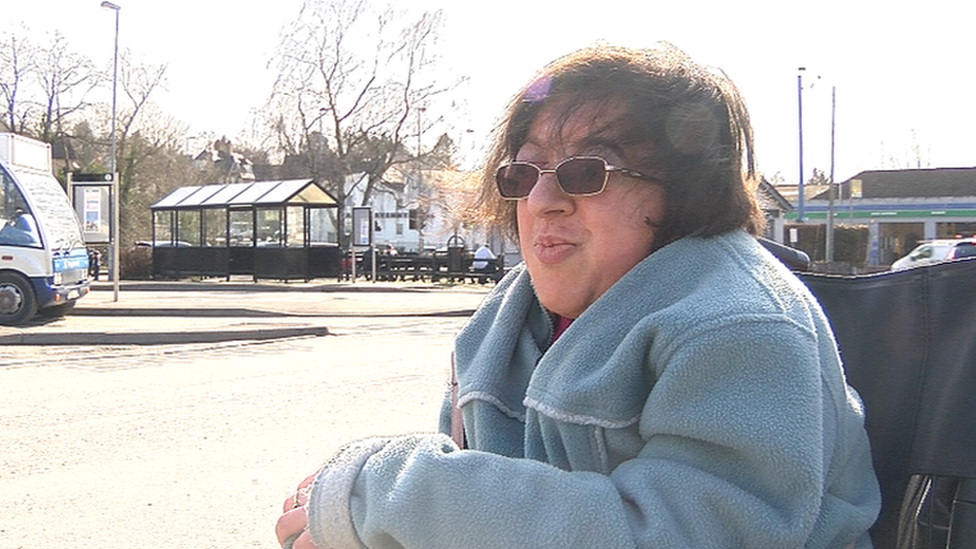
Sarah Griffiths said she frequently finds it difficult to board buses
Sarah Griffiths, from Abergavenny, said she tried to board a bus from Abergavenny to Cwmbran last month but was refused because another wheelchair user was already onboard.
"It really put me off - I've got to have a taxi everywhere.
"There are quite a few people who have the same problem and it's happening time and time again. They apologise, but it just keeps happening," she said.
A spokesman for Stagecoach, which runs the route, said the company would investigate the incident.
"We recognise that different passengers have different requirements and we work with bus manufacturers to make sure our vehicles are accessible to as many customer groups as possible.
"We have been commended on our approach by disability groups and we work closely with them on improving our services.
"Over the past decade, we have also invested more than £1bn in new accessible buses, which benefit wheelchair users, customers with restricted mobility and families with young children."

The Department for Transport is yet to comment.
In the wake of the Supreme Court decision in January, it said "public transport should be accessible to all" and it would consider the ruling.
"We are working with operators, disability groups and local authorities to ensure that disabled people can easily get onto buses," the DfT added at the time.
- Published1 November 2013
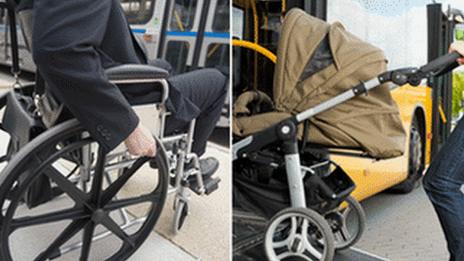
- Published8 December 2014
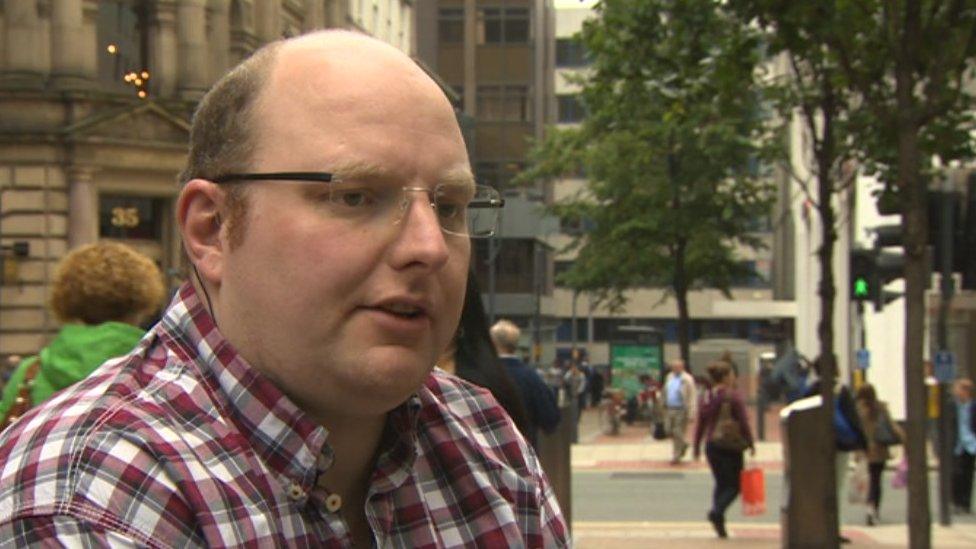
- Published23 September 2013
